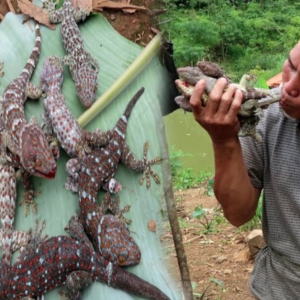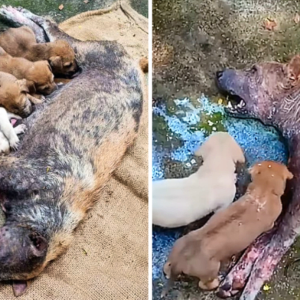
In 2010, a renowned nature filmmaker called Craig Foster – suffering from debilitating burnout and adrenal fatigue at the time – eventually made friends with a speckled, eggplant-hued octopus while freediving to get out of his lethargy. At first, the octopus was unwilling to move about freely in Foster’s presence, but over time Foster proved himself not to be a threat. The slow acclimation process culminated in a touching meeting where the octopus inches toward Foster and hesitantly unfolds one of her arms onto his hand, playfully latching on with her suckers and leaving Foster astonished. The whole process was documented by Netflix, and you can watch where it all evolved here.
Although octopi are known to be wickedly smart, the mollusks are hardly well-understood. And lobsters, and squid, are no exception. But now we have recognized they have feelings, like we do.
Well, at least in the UK. The government there has now officially included decapod crustaceans – including lobsters, crabs, and crayfish – and cephalopod mollusks – including squid, octopuses, and cuttlefish – in its Animal Welfare (Sentience) Bill, IFL Science reports. This means they are now recognized as “sentient beings” in the United Kingdom.

The measure originates from an independent review led by Dr Jonathan Birch, an associate professor at the London School of Economic’s Department of Philosophy, Logic, and Scientific Method. The research team there reviewed over 300 studies and found “strong scientific evidence decapod crustaceans and cephalopod mollusks are sentient” – meaning they can consciously perceive feelings and sensations like pain.
Vertebrates (animals with a backbone) are already covered by the bill, but octopuses and other invertebrate animals were previously left out due to their lack of a backbone. And although the central nervous system of invertebrates is indeed very different from that of vertebrates, that doesn’t necessarily mean their central nervous system is any less complicated than certain mammals considered sentient by humans. Octopuses, for example, have a donut-shaped brain in their head and eight other “mini-brains” in each tentacle. And they can be incredibly intelligent, as demonstrated by the documentary My Octopus Teacher described in the intro to this article. They are capable of some remarkably complex behavior, including interpreting potentially physical and emotional pain.

“The amendment will… help remove a major inconsistency: octopuses and other cephalopods have been protected in science for years, but have not received any protection outside science until now. One way the UK can lead on animal welfare is by protecting these invertebrate animals that humans have often completely disregarded,” Dr Birch said in a statement.
The review recommends against using a variety of current commercial practices involving these animals, that are considered to be cruel. These include extreme slaughter methods, transporting the animals in icy water, the sale of live decapod crustaceans to untrained handlers – and live boiling without stunning.
Although the UK government has promoted the move as “leading the way on animal welfare,” the change won’t immediately affect existing legislation or industry practices regarding how these animals are treated in kitchens and pet stores. For now, it even remains legal for a chef to toss a live lobster into a cooking pot. Nevertheless, the measure will most probably be taken into account when shaping animal welfare laws in the future.
Other countries have taken similar steps in recent years. For instance, the practice of boiling lobsters alive without stunning them first is now illegal in Austria, Norway, Switzerland, and New Zealand.
In the US, boiling lobsters alive has technically been outlawed since at least 1999. That said, the provision of other rights for cephalopods and decapod crustaceans has been lagging behind. For example, octopuses aren’t recognized as “animals” when it comes to federally funded research in the US, so they don’t have to be given the same humane treatment as other lab animals receive. Accordingly, the Animal Welfare Act and National Institutes of Health do not recognize these animals as ones to be protected in nature or science.
That has to be changed soon.





